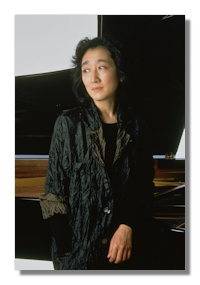
The Music Mountain
The classical world's most coveted retreat
By Alex Ross
Mitsuko Uchida, one of the world's leading classical pianists, could comfortably pass her summers flying from one festival to another, staying in luxury hotels and private villas. Instead, she stays on the campus of Marlboro College, a small liberal-arts institution in southern Vermont. Since 1951, the college has hosted Marlboro Music, an outwardly low-key summer gathering that functions variously as a chamber-music festival, a sort of finishing school for gifted young performers, and a clandestine summit for the musical intelligentsia. Uchida and the pianist Richard Goode serve as Marlboro's co-directors, alternating the lead role from year to year; last summer, when I visited three times, Uchida was in residence from late June until early August. She plays a variety of roles in the Marlboro world – high priest, den mother, provocateur, jester, and arbiter of style.
Marlboro, whose fifty-ninth session gets under way next week, is a singular phenomenon. The great Austrian-born pianist Rudolf Serkin, Marlboro's co-founder and longtime leader, once declared that he wished to "create a community, almost utopian," where artists could forget about commerce and escape into a purely musical realm. Marlboro has been compared to a kibbutz, a hippie commune, Shangri-La, a cult (but "a good cult"), Princeton's Institute for Advanced Study, and George Orwell's Animal Farm, where "all animals are equal, but some animals are more equal than others." On certain lazy days, it becomes a highbrow summer camp, where brainy musicians go swimming in the local pond.
Read more about this at the New Yorker website (subscription and registration required):














